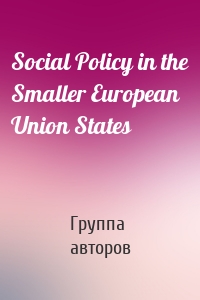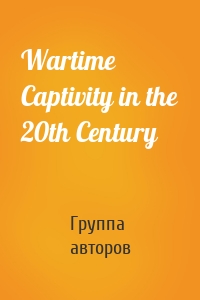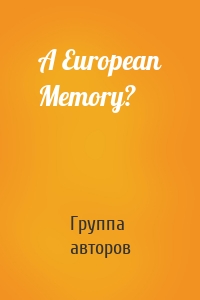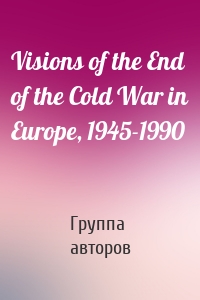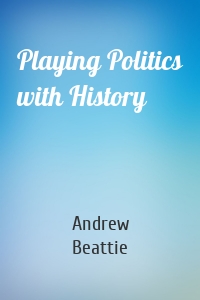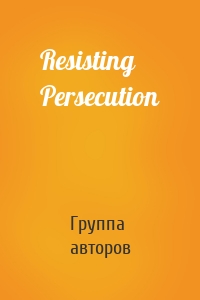Серия "Contemporary European History"
10 кн.Скачать лучшие книги серии Contemporary European History - автор Группа авторов в формате fb2 или читать онлайн, бесплатно и без регистрации. Читаемые, полные версии книг, без сокращений - на сайте Knigism.online. Скачать книги полностью в количестве 10 шт.
Wartime Captivity in the 20th Centu...
Long a topic of historical interest, wartime captivity has over the past decade taken on new urgency as an object of study. Transnational by its very nature, captivity’s historical significance extends far beyond the front lines, ultimately inextricable from the histories of mobilization, nationalism, colonialism, law, and a host of other related subjects. This wide-ranging volume brings together an international selection of scholars to trace the contours of this evolving research agenda,...
| Автор | Группа авторов |
Whose Memory? Which Future?
Scholars have devoted considerable energy to understanding the history of ethnic cleansing in Europe, reconstructing specific events, state policies, and the lived experiences of victims. Yet much less attention has been given to how these incidents persist in collective memory today. This volume brings together interdisciplinary case studies conducted in Central and Eastern European cities, exploring how present-day inhabitants “remember” past instances of ethnic cleansing, and how they...
| Автор | Группа авторов |
Conflicted Memories
Despite the growing interest in general European history, the European dimension is surprisingly absent from the writing of contemporary history. In most countries, the historiography on the 20th century continues to be dominated by national perspectives. Although there is cross-national work on specific topics such as occupation or resistance, transnational conceptions and narratives of contemporary European history have yet to be worked out. This volume focuses on the development of a shared...
| Автор | Группа авторов |
Investigating Srebrenica
In July 1995, the Bosnian Serb Army commanded by General Ratko Mladic attacked the enclave of Srebrenica, a UN “safe area” since 1993, and massacred about 8,000 Bosniac men. While the responsibility for the massacre itself lays clearly with the Serb political and military leadership, the question of the responsibility of various international organizations and national authorities for the fall of the enclave is still passionately discussed, and has given rise to various rumors and conspiracy...
| Автор | Группа авторов |
A European Memory?
An examination of the role of history and memory is vital in order to better understand why the grand design of a United Europe—with a common foreign policy and market yet enough diversity to allow for cultural and social differences—was overwhelmingly turned down by its citizens. The authors argue that this rejection of the European constitution was to a certain extent a challenge to the current historical grounding used for further integration and further demonstrates the lack of understanding...
| Автор | Группа авторов |
Visions of the End of the Cold War...
Exploring the visions of the end of the Cold War that have been put forth since its inception until its actual ending, this volume brings to the fore the reflections, programmes, and strategies that were intended to call into question the bipolar system and replace it with alternative approaches or concepts. These visions were associated not only with prominent individuals, organized groups and civil societies, but were also connected to specific historical processes or events. They ranged from...
| Автор | Группа авторов |
Resisting Persecution
Since antiquity, European Jewish diaspora communities have used formal appeals to secular and religious authorities to secure favors or protection. Such petitioning took on particular significance in modern dictatorships, often as the only tool left for voicing political opposition. During the Holocaust, tens of thousands of European Jews turned to individual and collective petitions in the face of state-sponsored violence. This volume offers the first extensive analysis of petitions authored by...
| Автор | Группа авторов |


